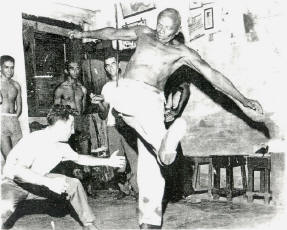It’s interesting to come back to one’s home country on vacation before returning to the normal rhythm of work, play, congregation, laundry, rent payments, etc. somewhere else!
Being here is not only giving me a chance to relax and enjoy friends and family, but also to do a lot of thinking, praying, reflecting, and planning. I really feel rejuvenated and excited to launch into a new season of developing my career, preparing for marriage, growing spiritually, and undertaking some new endeavors in 2011.
Being in the U.S. is a bit of an adjustment, because the day-to-day reality is such a contrast to what I’m used to in Salvador. I’m used to traveling by bus, not car or subway; eating rice, beans, and meat for lunch rather than sandwiches and salads; washing clothes by hand rather than in the machine; sweating and taking three showers a days rather than having chapped lips and a runny nose; using the internet and TV sparingly rather than being constantly “connected”; dealing with more challenges in general rather than having such convenience and comfort.
But what’s even more interesting is observing how the cultural and social norms differ – the jeito, or the way people generally act. Americans have a love of efficiency, organization, innovation, and excellence that’s often lacking in Brazil. If we do something, we like to do it well. Brazilian visionaries, entrepreneurs and successful businesspeople have more of this mindset, but your average Brazilian worker tends to have a more “relaxed” work ethic. Another thing that struck me is American politeness. Brazilians are tend to be warmer and more personable, but they sometimes lack what we would call tact. Americans may be slightly less warm at first glance, but we are more respectful of boundaries, feelings, and social rules.
Some things I admire about the Brazilian jeito are the optimism (Brazilians, even those of very humble background, tend to be happy people. Stress, cynicism, sarcasm, dissatisfaction and depression are far more widespread among Americans) and the healthier food culture (preferring natural and home-prepared meals rather than pre-prepared stuff, junk food and excessive portions).
I was reflecting a little bit on convenience and comfort, and thinking about how although they’re certainly not intrinsically bad, they do make the necessity for self-control even higher:
- When the pantry is always full of food, it’s easier to snack mindlessly.
- When you can order something online and have it at your doorstep tomorrow, it’s easier to spend yourself into debt.
- When you have fast, reliable internet at home, it’s easier to get sucked into an online addiction.
- When money and material possessions are easy to come by, it’s easy to forget that we’re dependent on God (and other people) for everything and that we’re not to get too attached to the material world.
- And when distractions and time-wasters abound – iPods, cell phones with games, Facebook and the infinite internet – it’s easy to fribble away time with useless stuff rather than productive/positive things. You can see the pattern in biblical times, too – the Israelites tended to forget God in periods of abundance.
This is not to say that creature comforts are evil and should be renounced – but rather that I can see how each culture has its own set of temptations to which it is particularly susceptible. Whereas Americans are more prone to greed, gluttony, and cynicism, I would say the main dangers in Brazil are laziness, sexual misconduct, and dishonesty/corruption.
It’s truly fascinating to have a foot in two cultures, and I hope I can draw on the best of both, while avoiding their pitfalls!



